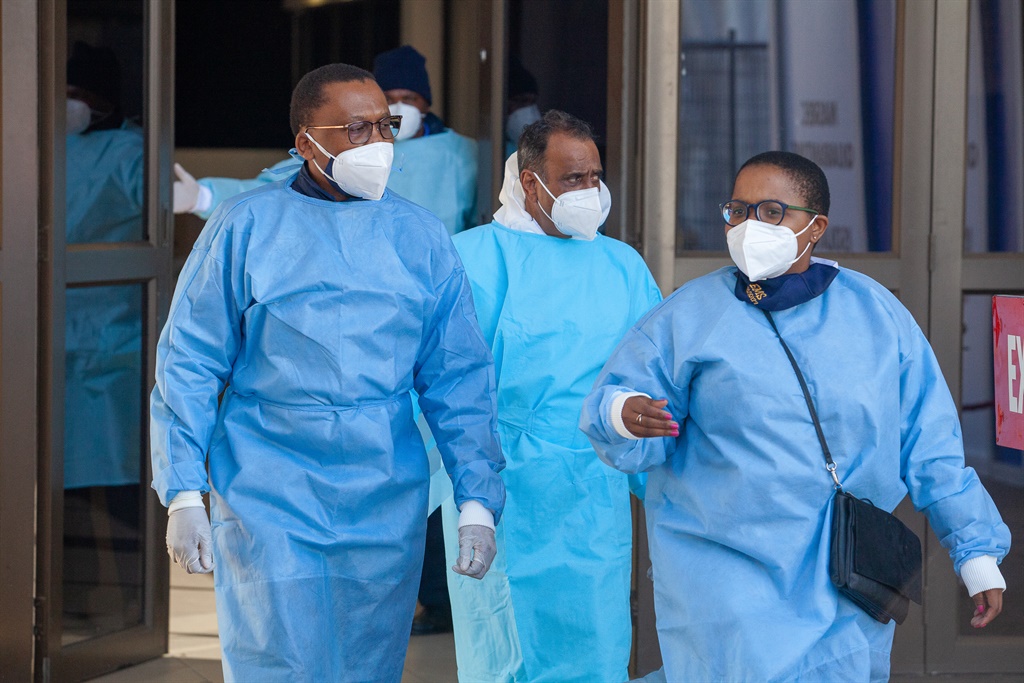- Gauteng is now the province with the highest number of Covid-19 cases.
- It was expected that the province would overtake the Western Cape this week.
- Gauteng now accounts for 33.4% of South Africa’s positive coronavirus cases.
Gauteng has officially overtaken the Western Cape as the country’s coronavirus hotspot with the highest number of cases cumulatively, Health Minister Zweli Mkhize announced late on Wednesday.
LIVE | All the latest coronavirus and lockdown updates
Gauteng is South Africa’s smallest but most densely populated province.
By Thursday, the province had recorded 75 015 positive Covid-19 cases, 33.4% of the national cases. The Western Cape now has the second most infections with 73 292 positive cases, or 32.6% of the national cases.
In total, 224 665 people have to date been infected, with the total deaths increasing by 100 to 3 602.
The number of recoveries is 106 842, which translates to a recovery rate of 47.5%.
Gauteng Health MEC Bandile Masuku has reportedly called on the National Coronavirus Command Council (NCCC) to reintroduce a hard lockdown in the province amid a spike in Covid-19 cases.
This follows statements by Health Minister Zweli Mkhize last week that a hard lockdown “may become necessary” to curb the pandemic.
On Monday, Provincial health department spokesperson Thabo Masebe, however, said Gauteng was not currently calling on the national government to reintroduce a hard lockdown, but rather better enforce current regulations.
The spike in Gauteng infections had been anticipated and expected.
On 28 June, Mkhize said: “We believe that within the coming days, Gauteng will emerge with the highest Covid-19 numbers. Factors contributing to this trend are inward migration, the large population (especially in metros like Johannesburg, Ekurhuleni and Tshwane), increased congregating which spurs cluster outbreaks, and the level to which people are able to adapt to new behaviours such as social distancing and the wearing of masks.”
He said it was inevitable that there would be cluster outbreaks as infections spilt from communities into places where people were gathering, such as mines, factories, taxis and buses.



Gauteng Health MEC Dr Bandile Masuku visits the Nasrec quarantine site in Johannesburg on 3 July.
He added when the country moved from lockdown Level 4 to 3, there was a large inward movement of people as economic activities resumed.
“The surge that has been witnessed in the past two weeks has developed due to speeding of infections carried in by members of the community as they moved back into the workplace,” he added.
Increase expected in winter months
Mkhize earlier said a rapid rise was being seen in the cumulative number of positive cases, showing that, as expected, the country was approaching a surge during the winter months of July and August.
“It is anticipated that while every province will, unfortunately, witness an increase in their numbers, areas where there is high economic activity will experience an exponential rise – beginning with Gauteng and the Western Cape and followed by the Eastern Cape and KwaZulu-Natal.”
Stay healthy and entertained during the national lockdown. Sign up for our Lockdown Living newsletter. Sign up and manage your newsletters in the new News24 app by clicking on the Profile tab

